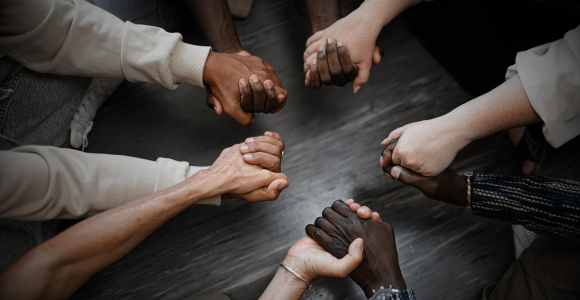
We are Connected
It may be difficult for those of us who are Westerners today to get our heads around Jesus’ plan for the disciples. From the very first moments of our lives, Western cultures acculturate us into an individualist way of relating to those around us. We place a high value on being self-reliant: being able to take care of ourselves without being dependent on others. As part of nature, though, we are dependent on much that is around us including others in our communities. It is this dependence on community and our communities’ interdependence with others that Jesus’ instruction to the twelve calls us to lean into.
Welcome Readers! Please subscribe to Social Jesus Here.
This Part 2 Dependency and the Community of Justice
(Read this series from its beginning here.)
The very first way people would be introduced to Jesus’ teachings was by encountering two itinerant beggars on their doorstep. Some would send them away. Others would welcome them in based on their need. For those who showed compassionate hospitality or a disposition to share, preparation for Jesus’ upcoming visit would begin. They were already showing they were open to the values of the kingdom. And it was with these people that Jesus’ life-giving kingdom teachings would take first root. When he arrived, he would find them.
As human beings, we depend on one another for survival, growth, and well-being. From birth, we rely on others for our care, nourishment, and protection, and that need for connection, support, and community remains essential as we grow. No one builds a life all by themselves. In our present culture, too, we depend on rural, Midwestern farmers for food. We depend on trade workers and builders for shelter. We depend on teachers for knowledge. Emotionally, we ever seek to know and be known. We seek companionship, love, and empathy, which shape our identity and our mental health. What I believe Jesus sought to foster in these stories is that even the smallest acts of kindness—cooperation with a beggar on a person’s doorstep—could ripple through their communities, reinforcing the truth that we are interwoven. Our interconnectedness isn’t a weakness; it’s a profound strength that reminds us of our shared humanity. Recognizing our dependence on each other encourages compassion, cooperation, and a more just and caring world.
The last part of our reading portrays the disciples after they return from their assignments. They are excited and amazed because even demons submit to them. But Jesus redirects their joy and understanding. We’ll pick up here in Part 3.
Are you receiving all of RHM’s free resources each week?
Begin each day being inspired toward love, compassion, justice and action. Free.
Sign up at HERE.














